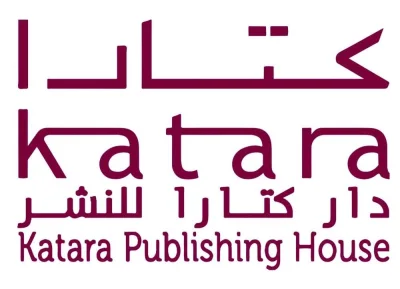SR, Doha
Answer: According to Article 96 of the Labour Law, the working woman having a period of service not less than one year will get a full rate payment for 50 days, including the period preceding birth and after that, provided that the period following the delivery shall not be less than 35 days. If the remaining period of leave after delivery is less than 30 days, complementary leave may be granted from annual leave. After the 50 days, the working lady may be absent with no pay for a period not exceeding 60 days; whether continuous or not, if such absence is caused by sickness proven by a medical certificate issued by a licensed physician. The law also states that such leave should not be calculated or covered by the annual leave or otherwise.
Employee destroys company property
Q: My company decided to terminate an employee as he was not fit for the job. The staff member was not performing well to reach the assigned sales target. The company also noticed that the property which was under his possession is damaged and from the CCTV footage it was clear that the employee had purposefully destroyed the things. What will be the action initiated against the employee if the management files a complaint? Please advise.
DJ, Doha
A: The management can file a police complaint for destroying the property. According to Article 389 of the Penal law, any person, who intentionally destroys, damages or spoils, another person’s movable or immovable properties, or makes them unusable, invaluable, useless or invalid, shall be punished with imprisonment for a term not exceeding three years and/or a fine not exceeding QR10,000.
Company retains workers’ passports
Q: I am working in a construction company and our company holds employees’ passports in the main office. Now the company has notified the employees to sign a letter authorising the company to hold their passports. I started working in the company in 2014 and have not issued any such letter. Does the company have legal authority to hold employees’ passports? Please advise.
HZ, Doha
A: Confiscation of employee passport by the employer or its representative is not in conformity with law; companies have no valid justification for retaining passports. The only authority allowed to hold the passport is the judicial authorities concerned or in cases specified by the law. As per Article 8 of the Entry, Exit and Residence law, the employer shall return the passport or travel document to the employee after completion of permit procedures or renewal, unless the employee requests in writing that the employer shall retain the passport or travel document provided that such passport or travel document should be returned to employee upon request. In the event of breach of this provision, the violator shall be subject to fine not exceeding QR25,000.
Authorising friend to sell the shares
Q: I was working as an engineer in a company in Doha and I have purchased some shares in a real estate business. Due to some issues with the employer, I have returned home. Now I am unable to return to Qatar. We are planning to sell the shares in the company to another company of Qatari partner. So, I require to authorise my friend to act on my behalf for the sale. What shall I do to authorise him? Please advise.
PJ, Doha
A: In order to transfer the shares in a company, prepare a special power of attorney authorising a friend in Qatar to sell the shares. The power of attorney should specifically state the purpose and it should include all relevant details to identify the shares in the company. The power of attorney prepared outside Qatar for use in Qatar requires to be notarised, attested, and consularised to the level of the Qatari embassy in the country of origin, before it is re-attested by the Ministry of Foreign Affairs in Qatar.
* Please send your questions to [email protected]
LEGAL SYSTEM IN QATAR
According to Article 322 of Civil and Commercial Procedure law, in the case of a person who is unable to speak, the habitual signs shall be considered oath, or his withdrawal from and objection to making the oath if he is unable to write. If he knows how to write, the oath or withdrawal from and objection to taking the oath shall be in writing. The minutes including the oath shall be signed by the swearer, the presiding judge or the deputed judge and the Registry of the court.
Anyone who directs a decisive oath shall disclose all other evidence pertaining to the event based on which the oath is taken. No party to the case may prove the perjury of an oath after it has been made by the party to whom it is directed or referred back. However, if the false oath has been proved by a criminal judgment, the party who suffers damages therefrom may claim compensation without prejudice to the right to challenge the judgment issued against him because of the false oath.
As per Article 329, at the request of either litigant or at its own discretion, the court may order to relocate to inspect the disputed matter or it may depute for this purpose any one of its judges. There shall be no need to pronounce the said order if issued against the litigants and if it is not issued against them, the order shall be pronounced through the Registry of the court at least 24 hours prior to the specified time. The court shall make a record of all proceedings related to the inspection, otherwise it shall be and void.
The court or any of its deputed judges, in the event of relocating for inspection, may appoint an expert to give his assistance in the inspection and shall hear any witnesses it deems appropriate. Such witnesses may be summoned to appear before the court even at the verbal request of the Registry of the court.
According to Article 333, when necessary, the court shall depute one or three experts. The court shall state in its judgment: Precise statement of mandate of the expert and urgent measures which is permitted to take; The trust money that shall be deposited with the court treasury to cover the expenses of the expert and the remuneration for his efforts, fees of depositing this trust money, the time during which the deposit shall be made and the amount that the expert may withdraw to cover the expenses; The time specified for filing the report; and Date of hearing after adjournment of the case in the event of depositing the trust money. Another session shall be determined in the event of non-deposit of the trust money.
If the litigants agree on the selection of one or three experts, the court will approve their agreement. Otherwise, the court shall select the experts from among those acceptable to it. Should one of the expert employees be depute, the administrative authority upon being informed of depositing the trust money, shall immediately appoint the expert who was mandated to act as such and inform the court of this appointment. If the trust money has not been deposited by the litigant assigned to deposit it or by any other litigant, the expert shall not be obligated to perform the work assigned. Within two days following the deposit of the trust money, the Registry of the court shall call the expert to examine the papers deposited in the case file. A copy of the judgment shall be given to him.



